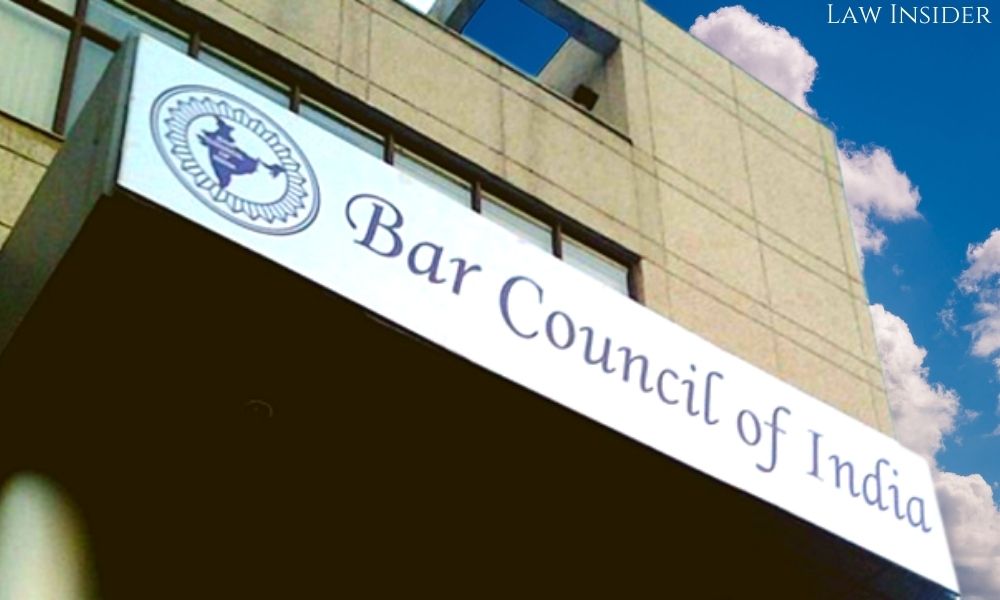Aastha Thakur
Published on: 14 September 2022 at 21:37 IST
The Bar Council of India has asked the State Bar Councils for their opinions on enabling a Korean citizen who had their legal education in India to register as an advocate in this country.
In this respect, the BCI has written to State Bar Councils to solicit their opinions and, via them, the opinions of the Bar Associations.
The matter centres on Mr. Daeyoung Jung’s enrolment in the Delhi State Bar Council. The High Court of Delhi’s actions in the case were taken into consideration by the Council as well; according to the Council, the Court appeared to be leaning towards giving him enrolment.
In response to Mr. Daeyoung Jung’s appeal, the Bar Council writes that he is a Korean national who holds a law degree from an Indian Law University and is looking to enrol in the Indian Bar Association in order to practise law here. A Korean Law University graduate who is an Indian national will be permitted to practise law in Korea, Mr. Jung had also informed the Bar Council.
According to the Bar Council’s letter, Mr. Jung claimed that Indian nationals might practise law in Korea by earning a three-year degree in Koran law, or Juris Doctor. In support of this, he cited Articles 4 and 5 of the Attorney at Law Act as well as Articles 5 and 6 of the National Bar Exam Act.
As a response to Mr. Jung, the Ministry of Justice (Korea) informed him that there is no nationality barrier or restriction for enrolment as an attorney at law in Korea. Mr. Jung had also provided a writing by the president of the Republic of Korean Bar Association stating that there are no nationality restrictions to write the National Bar Exam and that a person who is qualified to be an attorney at law can be enrolled into the Korean Bar.
The Bar Council has also presented the points that were debated by the majority of its members. They discussed Article 19(1)(g), which grants Indian citizens the basic right to engage in any profession or occupation, but does not extend that right to anybody who is not an Indian citizen, according to the letter. Additionally, the BCI has a responsibility to protect the rights and obligations of the Indian Advocate under Section 7 of the Advocates Act.
In addition, BCI cited Section 24 of the Advocates Act, which states that “subject to the other conditions contained in the Act, a native of any other country may be admitted as an Advocate on a State roll, if citizens of India, suitably qualified, are authorised to practise law in that other country.” The Council noted that the proviso is directory and that the term “may” rather than “must” is used in the proviso.
Consequently, the BCI claimed in the letter that “there is no requirement on the BCI to accept national of another country as an advocate on a state roll in any State Bar Council in India and the word’may’ is used in a directory meaning.”
The Bar Council said in the letter that Section 47 of the Advocates Act, which deals with reciprocity, and stated that, “The basis of reciprocity with any foreign Country is that an Indian Law Degree holder should be entitled to practice law in that Country and then similarly India could think of allowing that foreign national holding a foreign degree to practice law in India.”
The BCI also stated that it was further discussed that if an advocate were found guilty of any professional misconduct, he or she could be punished under Section 35 of the Advocate Act; however, in the case of a foreign national, no action could be taken if the individual left the country and entered territory outside of Indian Jurisdiction. Additionally, permitting only one person to enrol would create a floodgate for foreign nationals to join the Indian Bar, which could not sit well with the Advocates who are Indian citizens.
The Bar Council of India had distributed the letter to conduct conversations with the different stakeholders as well as all the State Bar Councils and the Bar Associations after determining that the problem required wider consideration. The letter further said that the BCI, State Bar Councils, and Bar Associations meetings will be conducted in phases to discuss the matter.
Since the case before the Delhi High Court is scheduled to be heard on September 21, the BCI asked the State Bar Councils to respond by September 16 or 17.

